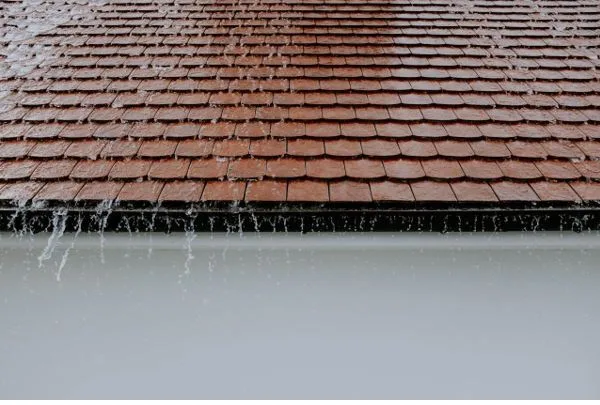How Seasonal Changes Affect Your Home’s Pipes
Ever notice your pipes groan in winter or water pressure drop in summer? Seasonal changes can quietly take a toll on your plumbing. Temperature shifts, humidity, and local weather patterns all affect how your system works. With extreme events like polar vortexes and droughts making headlines, homeowners are more aware of these risks. In places like Kaufman and Ennis, seasonal shifts can directly impact pipe condition and performance. From freezing winters to sweltering summers, knowing how the seasons affect your plumbing is key to avoiding costly problems.
In this blog, we will share how different seasons affect your pipes and what you can do to keep them in good shape year-round.
Why Winter is the Toughest Season for Pipes
Cold weather is the most infamous culprit when it comes to plumbing trouble. When temperatures drop below freezing, the water inside your pipes can freeze. Water expands as it freezes, which puts enormous pressure on the pipe walls. This is why so many homeowners experience burst pipes during cold snaps.
Frozen pipes are more than a repair bill—they can disrupt your daily life. No water for cooking, cleaning, or bathing is a major inconvenience. In severe cases, a burst pipe can cause significant water damage to floors, walls, and furniture.
Prevention starts with insulating pipes in unheated areas like basements, garages, and crawl spaces. On very cold nights, a slight faucet drip can keep water moving and prevent freezing. Sealing drafts near plumbing lines also helps. Winter can also cause water pressure changes, as cold water contracts and municipal systems face extra strain during freezing weather.
How Professional Services Help Through Seasonal Transitions
While some seasonal pipe issues can be handled with DIY maintenance, others benefit from professional care. Companies like Benjamin Franklin Plumbing of Kaufman and Ennis specialize in identifying and addressing seasonal risks before they turn into emergencies. They can check for small leaks that could worsen in winter, flush out sediment buildup before summer, and make recommendations based on the specific climate patterns of the area.
Professional inspections also help catch issues you might miss. For example, corrosion inside pipes isn’t always visible until it causes a problem. A trained technician can spot early warning signs and suggest preventive measures. This is especially useful during seasonal transitions when pipes are adjusting to changes in temperature and usage.
Having experts on your side also means you can prepare for less obvious seasonal issues. In spring, for instance, heavy rains can lead to ground shifting, which in turn can affect buried water lines. A plumbing professional can assess whether your system is at risk and recommend ways to protect it.
The Effects of Summer Heat on Plumbing
Most people don’t think of summer as a risky time for plumbing, but high temperatures come with their own challenges. Hot weather can cause pipes to expand slightly. Over time, this expansion and contraction—paired with seasonal shifts—can weaken joints and fittings.
Summer also often means increased water use. Kids are home from school, sprinklers run daily, and more showers are taken after outdoor activities. This spike in demand can strain older plumbing systems. Leaks that seemed insignificant in spring can become bigger problems when the system is working harder.
In some regions, summer droughts lead to water restrictions. Lower water levels in reservoirs can cause sediment to move through municipal systems, sometimes ending up in your home’s pipes. This sediment can clog aerators, damage appliances, and reduce water quality.
To protect your plumbing in summer, consider scheduling a mid-year inspection, especially if you’ve noticed changes in pressure or water clarity. It’s also wise to monitor outdoor water use and make sure hoses and sprinklers are in good condition to prevent unnecessary strain.
Spring’s Hidden Plumbing Challenges
Spring often brings a sense of relief after winter, but it can also introduce plumbing problems. Melting snow and seasonal rains can saturate the ground, putting pressure on underground pipes. This can lead to cracks or shifts that aren’t immediately obvious but may cause trouble later.
The thawing process after a cold winter can also reveal damage that wasn’t apparent when everything was frozen. Small leaks may become more noticeable, and drains that seemed fine in winter may suddenly clog as debris from melting ice and snow works its way through the system.
Spring cleaning shouldn’t just be about closets and windows. It’s also a good time to check exposed pipes for signs of rust, leaks, or mineral buildup. Running all faucets and flushing toilets in rarely used bathrooms can help ensure everything is working properly after months of reduced use. Clearing debris from outdoor drains can prevent blockages during seasonal rains. Scheduling a quick plumbing inspection can catch minor issues before they become costly repairs.
Autumn Preparation for Colder Weather
Fall is the season for getting your plumbing ready for winter. Temperatures may still be mild, but the gradual drop in heat gives you a window to make preventive changes. This is the time to disconnect outdoor hoses, drain sprinkler systems, and insulate exposed pipes.
Autumn is also a good time to have your water heater serviced. As the weather cools, you’ll rely on it more, and sediment buildup can reduce its efficiency. Flushing the tank before winter helps ensure you have consistent hot water during the colder months.
Checking your sump pump before heavy fall rains can also save you from unexpected flooding. Testing it now means you won’t be caught off guard when you need it most.
The bottom line? Seasonal changes are a fact of life, but they don’t have to mean constant plumbing problems. By understanding how temperature, rainfall, and seasonal habits affect your pipes, you can take steps to prevent damage and keep water flowing smoothly all year long. A little preparation, combined with timely professional help, can make a big difference. Your pipes might not thank you out loud, but they’ll keep doing their job quietly—no groans, no bursts, and no unexpected surprises.




